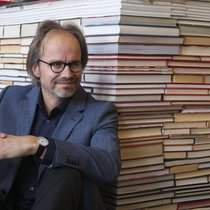As part of the Smart Urban Mobility program, in collaboration with Delft University of Technology (DIMI, Delft Deltas Infrastructure Mobility Initiative, Faculty of Civil Engineering and Geosciences and Faculty of Architecture and the Built Environment) and University of Paris Est, AMS Institute is investigating integrated mobility approaches on station locations and new design challenges of rail-metro stations.
At the main point of intersection between the railway and the city, stations are key elements of the organization of the intermodal transport but also catalysts of urban developments. The station of the future has to meet several challenges: passenger growth, climate change, social equity and segregation, energy transition and new mobility developments (such as Mobility as a Service), all the while boasting exemplary sustainable development credentials. Towards energy efficient and environmental friendly interchanges, tomorrow’ station needs to be also scalable, enhanced, shared, attractive and expressive all at the same time (Circular Approach).
Maquette of Gare Saint-Denis Pleyel by Kengo Kuma & Associates, Grand Paris Express station.La Fabrique du Metro in Paris. 15 March 2018
Cities worldwide continue to grow, therefore stations are - more than ever - crucial hubs for mobility, exchange, and act as catalysts for successful urban development. Video extract courtesy of the Embassy of the Netherlands in France.
The focus of this research initiative is on metro-railway stations, the shifts on mobility demand and mass transit, the catalyst role of stations for urban development and the implication of new mobilities on the configuration of the intermodal urban hubs.
Board of Intentions Stations of the Future/ Gare du futur. To ensure match-making and the follow-up of this event, this board was signed by Nico Schiettekatte (Dutch Embassy), Marcel Hertogh (DIMI TU Delft), Cécile Delolme (Université Paris-Est), Cécile Maisonneuve (La Fabrique de la Cité) and Arjan van Timmeren (AMS Institute). Participants of the workshop expressed their intent for further developing the project by adding their contacts. Atelier Néerlandais, Paris, 16 March 2018
“We need to think about what the station means to the city now and in the future and its connection to other modalities of transport, be it metro, bus, pedestrian walkways or on demand services. Starting with the Randstad as living laboratory, "Stations of the Future" explores integrated metropolitan challenges by linking the transversal discipline of infrastructural planning, urban design, architecture and urban management among others.”
Manuela Triggianese
Research Fellow
PUBLICATION
Stations as Nodes exploring the role of stations in future metropolitan areas, from a French and Dutch perspective
A publication with the project’s first results is out! This book has built upon several activities currently running at the Amsterdam Institute for Advanced Metropolitan Solutions (AMS Institute), Delft University of Technology (DIMI, Delft Deltas Infrastructure Mobility Initiative and Department of Architecture of the Faculty of Architecture and the Built Environment) and University of Paris-Est (l’École d’Urbanisme de Paris).
You can download the e-book in BK BOOKS and you can order an hard copy at AKO.NL or BOL.COM
| Related Information: |
| In the news: |
Principal Investigators
Project members
Partners









